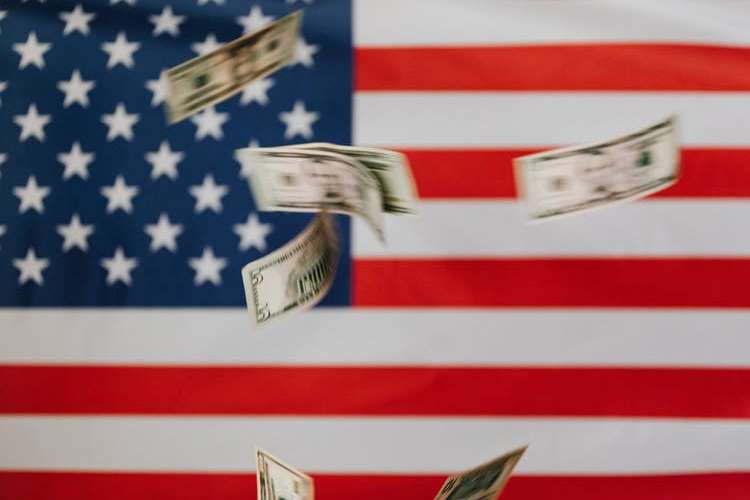The Reverse Roosevelt

Image Source: Pexels
America now speaks loudly while carrying a small stick. America’s global standing took another hit this week when President Trump learned—again, from China—that planning ahead has its advantages. If only someone in the West Wing had noticed the rare-earth dependency before rattling the tariff saber. Turns out, that was the big stick in this unnecessary trade war, and Beijing’s the one holding it.
Theodore Roosevelt coined the phrase “Speak softly and carry a big stick.” Trump offers the remix: speak loudly and carry a twig.
The Kelly Letter called it. In our pre-game note before Thursday's summit, we wrote that skepticism about Trump’s China strategy “borders on consensus.” Analysts see an approach long on theatrics and short on coherence—fires started mainly so the arsonist can pose as the fireman. The trade war that began in 2018 still smolders under a new label, “phase two,” but it’s the same old kindling, stacked higher.
Too bad Beijing stocked up on fire extinguishers. It learned long ago to let America play to the newsfeed while China’s strategists play to the calendar.
When Beijing reduced US soybean imports to zero last month, it sent a message: we don’t need you as much as you think. Meanwhile, the United States still depends on China for roughly 85%-90% of rare-earth refining capacity.
The Washington-Beijing relationship is the most consequential in the world, and suffice it to say, it’s not going America’s way. This week’s truce came on China’s terms, with the United States leaving the table smaller for the experience.
When Trump announced his “Liberation Day” tariffs in April, he seemed convinced that because China exported more to America than vice versa, the US held the upper hand. But it was arithmetic without context. Much of what China buys from us, it can source elsewhere. The critical stuff we need from China, we can’t.
Beijing holds the world’s rare-earth choke collar, and Trump never noticed the leash. Many Japanese people I know still shake their heads over 2010, when China yanked that collar to remind Tokyo who supplied the minerals. That lesson, somehow, never made it into the Trump playbook. So while the White House toasted its tariffs, Beijing pulled the chain again, expanding its export controls this month to set up an easy win.
Note to future trade warriors: Study history. Burned once, Japan spent the next decade diversifying its rare-earth supply toward Australia and beyond. America is only now starting down that same road—on multi-year timelines that should have begun multi years ago.
In the meantime, China keeps reaping what it sowed. It agreed at Thursday’s summit to pause rare-earth export controls for one year. In return, Trump agreed to lower tariffs and—much more significant—roll back national-security restrictions on Chinese companies.
True to form, Trump told reporters aboard Air Force One that “on the scale from zero to ten, with ten being the best, I would say the meeting was at a twelve.” Which sounds impressive, until you realize twelve is the number of months China just bought to tighten its grip.
The US suspended for one year the new rule that broadened the “entity list,” a trade blacklist that had restricted dozens of Chinese firms from access to advanced American technology. The suspension marked the first time Washington has used national-security export controls as a bargaining chip in trade negotiations. Beijing’s diplomats must have pinched themselves to make sure they weren’t dreaming.
For decades, national security was considered sacrosanct in trade talks, a classic red line not to be crossed. Under Trump, it just became another poker chip sliding over the felt. Score one for Beijing, which has spent years trying to merge economic and security negotiations into the same bucket. It finally succeeded.
Let’s recap:
- Antagonize China with provocative tariffs? Check.
- Fail to anticipate the rare-earth backlash? Checkmate.
This is the kind of strategy that makes America’s adversaries smile and its allies cringe. You don’t need enemies when you’re this good at beating yourself.
We’re now worse off with China than before the trade war began. Beijing gained leverage; Washington lost credibility. It’s one thing to lose ground; it’s another to demonstrate, live online, how poorly you understand the game board.
The US used to command a network of democratic allies and enjoy unmatched economic leverage. Now it’s alienated the first and ceded much of the second. China, by contrast, has parlayed stoic endurance into global influence, letting America tire itself out shouting across the Pacific.
Sure, the one-year truce may bring a respite, but it won’t change the fundamentals. Both sides are buying time: Beijing to cement dominance in strategic materials, Washington to figure out what just happened. No structural issues were resolved; no long-term framework was agreed upon.
The only thing that’s really changed is the power dynamic. Beijing arrived stronger, savvier, and perfectly aware that Trump’s bluster masks strategic weakness. America looks like a man shouting through a megaphone at an opponent who brought a blueprint.
So here we are: the nation that once spoke softly while carrying a big stick now bellows across the stage while waving something smaller. Theodore Roosevelt would have understood the value of patience, preparation, and quiet leverage. Trump prefers noise, improvisation, and immediate applause. To what end? America’s voice growing louder as its influence grows smaller.
Somewhere in Beijing, a strategist probably just smiled, marked another date on the calendar, and whispered: "Your move, Mr. President."
More By This Author:
Trump Relights The Tariff FuseDetente By Deadline Extension
Jobs Report Generated 1% Enthusiasm
You can learn more about the way I use leveraged ETFs in The Kelly Letter at jasonkelly.com



